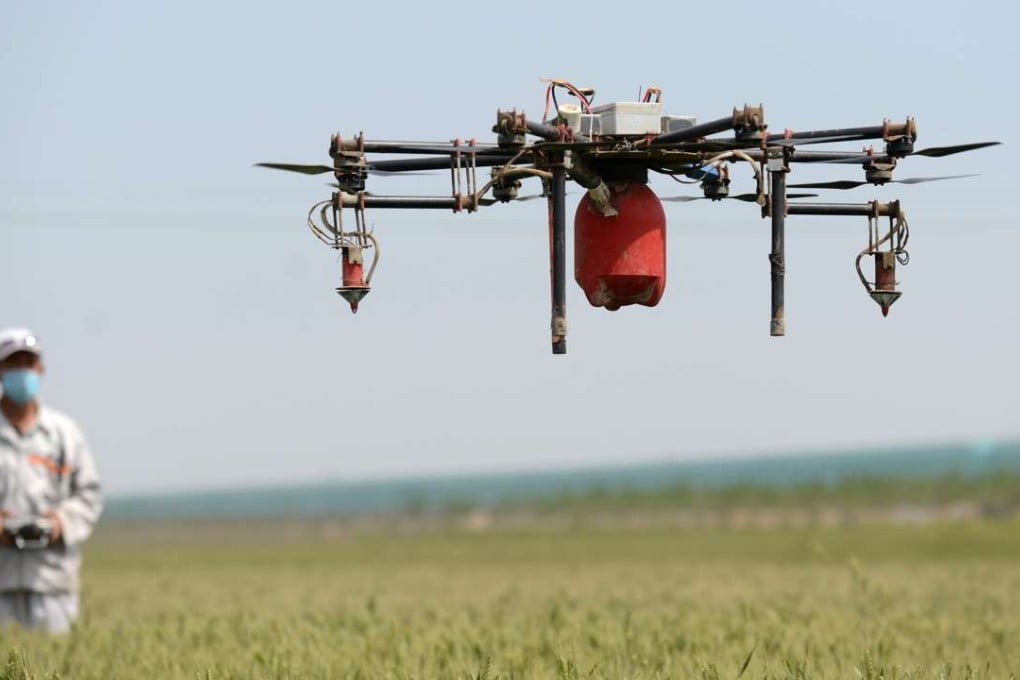Drones for agricultural use taking off in China
Companies seek to be first movers in the billion-yuan emerging market that has the backing of Beijing

The burgeoning new market for drones in the agricultural industry – a sector actively encouraged by the Chinese government, unlike the more contentious consumer drones – is attracting first movers to all facets of the value chain, from design and manufacturing to pilot training and leasing.
The market for plantation unmanned aerial services in China is worth 30 billion yuan per annum with the government pushing to increase standardisation and automation in the agricultural sector, Guotai Junan Securities said in a report. A quarter of some 400-strong drone manufacturers in China are making them for agricultural use, according to various industry estimates.
TTA Aviation, a company seeking a listing on the ChiNext Board on the Shenzhen Stock Exchange, is one of the first and largest players in the manufacture of such drones as well as the training of their pilots. General manager Yang Yi, who founded the business in 2008, said the company now holds 30 to 40 per cent of the drones for plantation service market in the country, offering products that sell for between 30,000 yuan to 80,000 yuan.
“We sell drones to operators that lease their service to farmers and train people to become professional drone pilots. We also organise free training sessions for farmers,” she said.
There is a lot of unleashed potential in the value-added part beyond drone manufacturing and crop spraying
Drones for the application of pesticides save 30-40 per cent of pesticide volume needed and are particularly suited for China, where parcels of land tend to be small.
Unlike drones for leisure and industrial use that can fly much higher, drones for plantation services tend to fly only one to three metres above crops, loaded with pesticides and powered with batteries that only support continuous flying for around 20 minutes. That makes them less of an operational hazard and free from airspace regulations.
